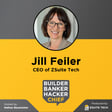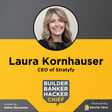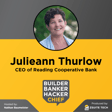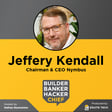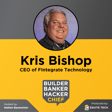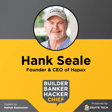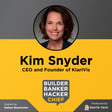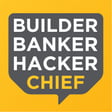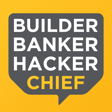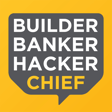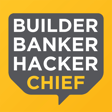
Carson Lappetito – Innovating from first principles, becoming a parent, and the difference between humility and ignorance | Episode 20
Welcome to episode twenty of Builder, Banker, Hacker, Chief! Joining me today is Carson Lappetito, President of Sunwest Bank.
On this show, I’m unpacking the stories, decisions, and influences that make people successful leaders.
As a preschool, Carson was tasked with managing the cash register of the pretend grocery store because he fully understood how to transact and make change. This might have foreshadowed his career as a successful investor, banker, technologist, and entrepreneur. But it was Carson’s father and grandfather trained him for those roles.
My name is Nathan Baumeister; I am the Co-founder and CEO of ZSuite Tech and the host of this podcast.
Many people become successful investors by studying the stock market and trading in the abstract. Carson has an unusual command of the underlying fundamentals that cause businesses to grow or fail. This has allowed him to trade securities on a major scale, invest in tech startups, and become a leader in the day-to-day operations of a commercial bank like Sunwest.
Although one of his first jobs out of college was helping restructure balance sheets in the wake of the 2007/2008 financial crisis, Carson biggest leadership transformation didn’t happen until he became a parent many years later.
His ability to build successful teams and partnerships lies in his understanding of how to tap into the motivations of each person and help them feel fulfilled.
As something of a “most interesting man in banking” Carson Lappetito brings wit, humor, and an incredibly sharp understanding of business, banking, technology. His perspective on the industry is rare and borders on clairvoyant.
Resources:
Carson’s recommendations:
Connect:
